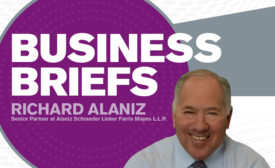Articles by Richard D. Alaniz
Heightened Immigration Enforcement by the Trump Administration
A source of major concern for employers
Read More
Federal Government Increases Scrutiny of Employer Handbook Provisions
Tips for employers to avoid Section 7 violations
Read More
Are You Responsible for Labor Violations Committed by Companies You Work With?
To best avoid potential liability, review your contracts
Read More
Copyright ©2025. All Rights Reserved BNP Media.
Design, CMS, Hosting & Web Development :: ePublishing


